FORT JACKSON, S.C. -- Brooke Miller felt a little out of place holding a weapon. But once she fired the first round, it felt like second nature.
Miller was one of 12 drill sergeant and cadre spouses who were given the opportunity to get a little taste of Basic Combat Training during the 2nd Battalion, 13th Infantry Regiment's John and Jane Wayne Day event April 22.
"I couldn't imagine doing this for 10 weeks. It was so intense," said Miller, who is the wife of Chaplain (Capt.) Matt Miller. "I think it takes a very special person to be able to endure even a little bit of what we endured."
The event began with a "reception" during which participants were told what they would be doing for rest of the day. After a briefing on Army Values and reciting the Soldier's Creed, the spouses were given a tour of the battalion's barracks and drilled on how to properly make a bed.
Next, the spouses were taken to EST2000 where they were given a chance to develop their basic rifle marksmanship skills and fire at electronic targets. Following BRM, the women were taken to the Fit to Win course, despite heavy rain.
"My wife really hadn't had any experience with the military. Everything she knew was what she had seen in movies," said Sgt. Brandon Spivey, with the battalion personnel office, of his wife Alex. "I had a lot of fun watching her suck it up for the day and see what a Soldier goes through in training."
After completing an exercise at the Teamwork Development Course, the spouses participated in a buddy team blank fire movement. The day ended with a Rites of Passage ceremony and graduation.
"It was tough. The obstacle course, the mental games, the rainy weather and the precision you had to have when making the beds in the barracks," Miller said. "Holding the weapon near the end was very tiresome after a long day of everything we went through."
The battalion's John and Jane Wayne Day is just one of many scheduled by the post's various units throughout the year.
"We introduce some of the elements of Basic Combat Training to cadre spouses in order to provide the spouse greater knowledge of what their cadre member goes through in a given phase of their 10-week cycle," said Lt. Col. Michael Peters, 2-13th commander. "Family members enjoy the day with their spouses and leave with a better understanding of their spouses' work."
The 165th Infantry Brigade will host a John and Jane Wayne Day event 8:30 a.m. to 4:30 p.m., Saturday. More than 50 drill sergeant and cadre spouses are expected to participate.
"We want to show the spouses what their Soldiers do on a daily basis, from reception to the time they get ready to graduate," said 1st Lt. Angela Gilbert, personnel office officer-in-charge for the 165th. "We will put them through reception and physical readiness training. Take them to victory tower and Range 4 for basic marksmanship and Fit to Win."
The John and Jane Wayne Day is aimed at providing spouses a better understanding of the Army and what their spouses do each day.
Gilbert said that the event is also one way the brigade is reaching out to family members whose Soldiers often work 12-14 hour days, and sometimes longer.
Having the chance to experience BCT firsthand allows the spouses to really understand the long days spent training Soldiers, Gilbert said.
"It goes hand-in-hand with the resiliency program," she said, referring to the programs at teaching Soldiers and family members how to be more resilient in order to better deal with stress. "It helps the families ... cope with the military (and) to better identify with the stressors their Soldiers encounter on the trail."
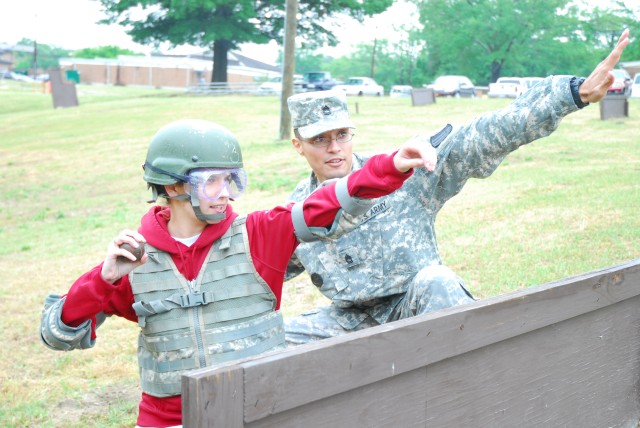
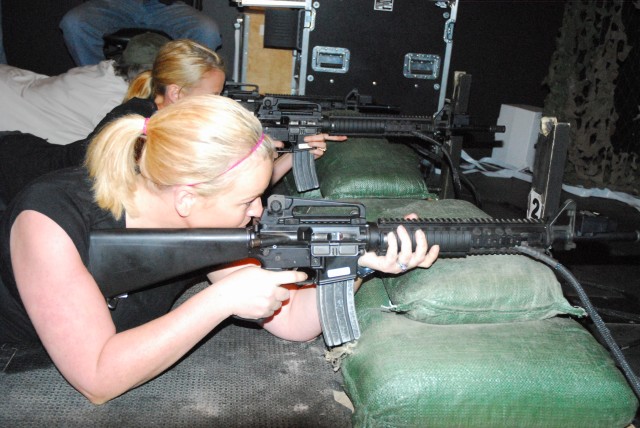
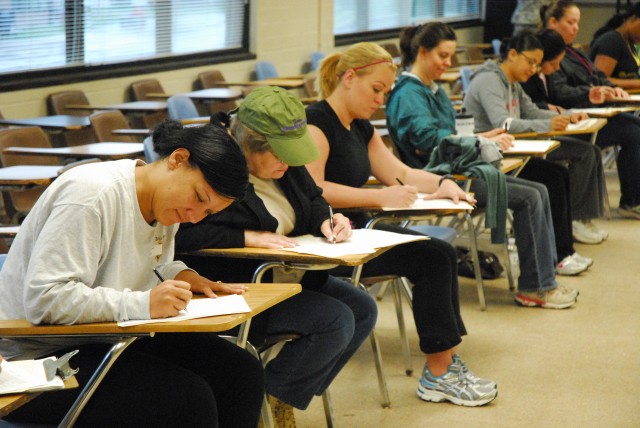
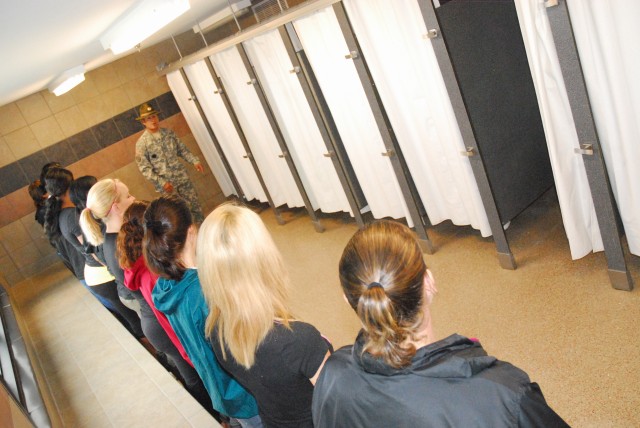
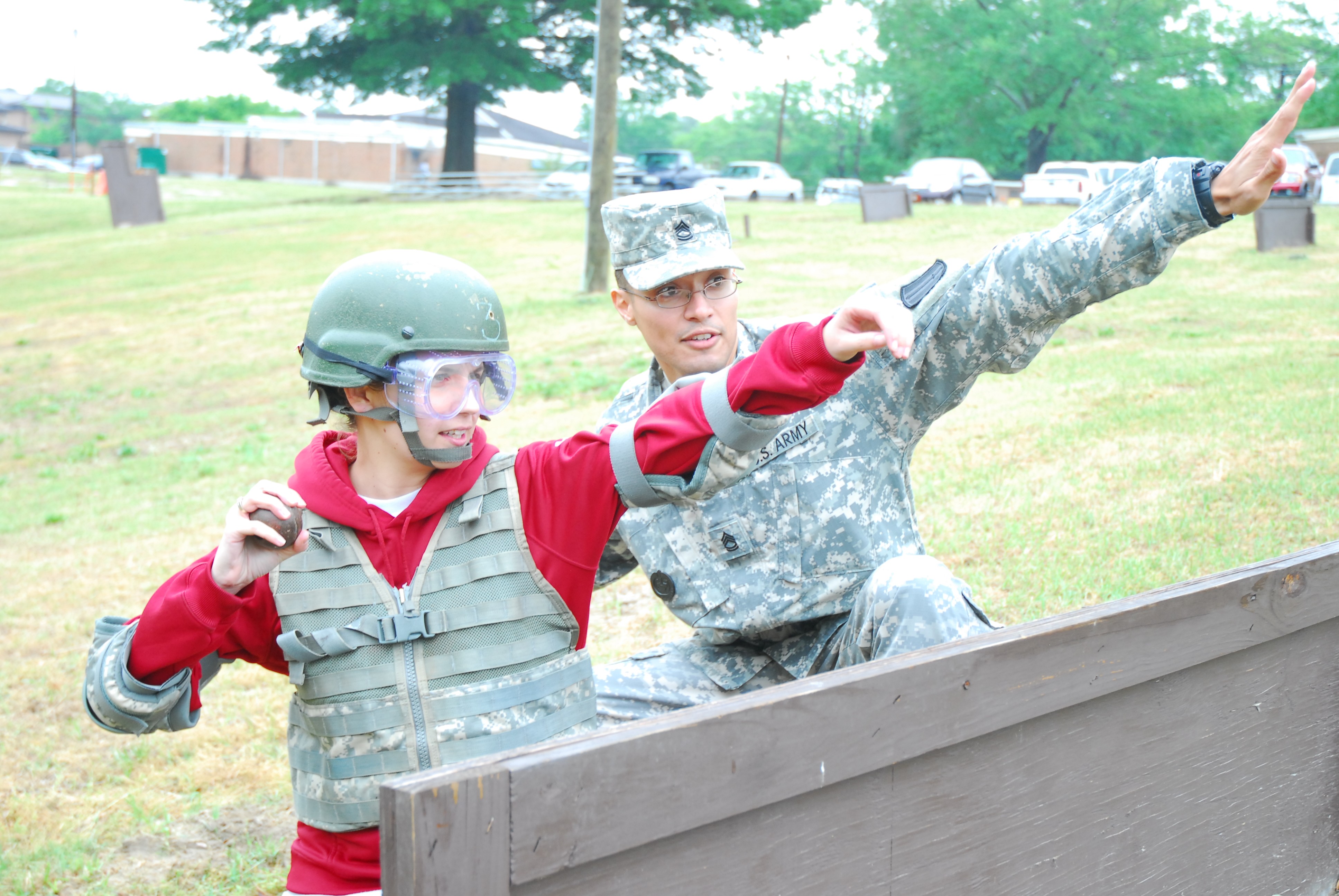
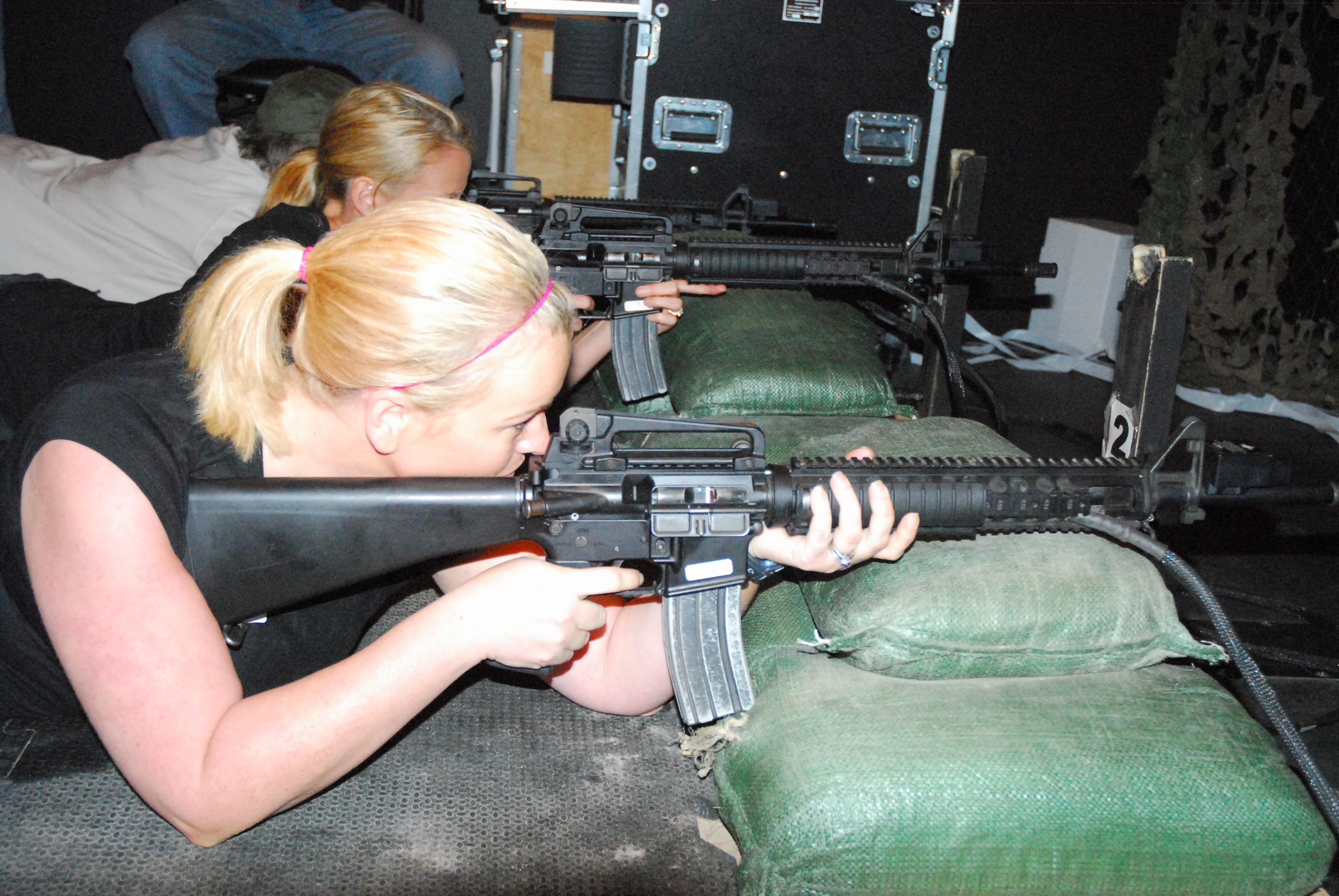
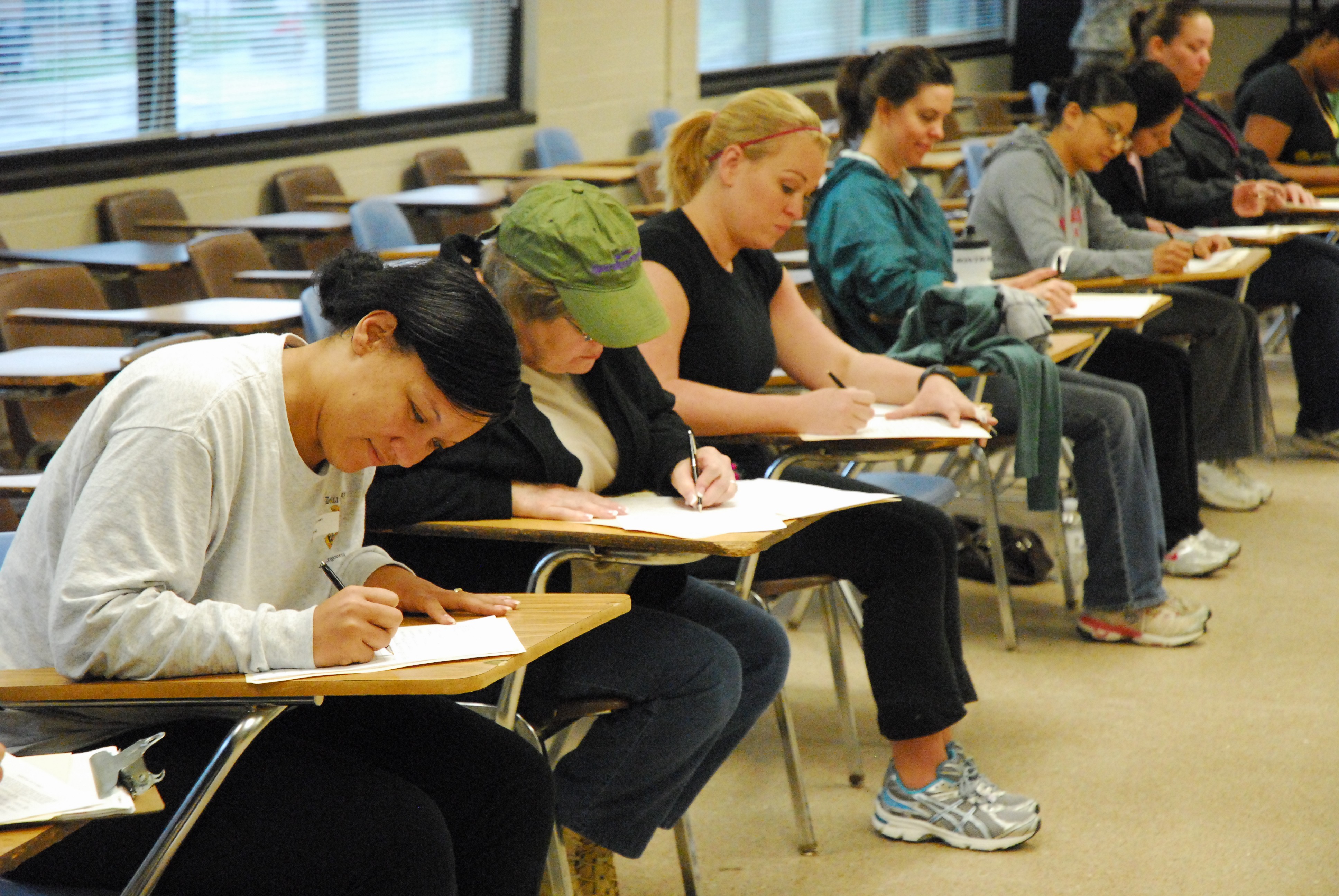

Social Sharing